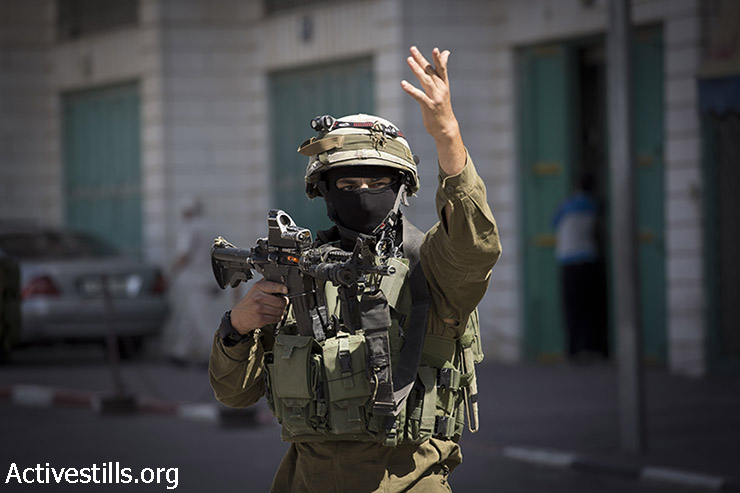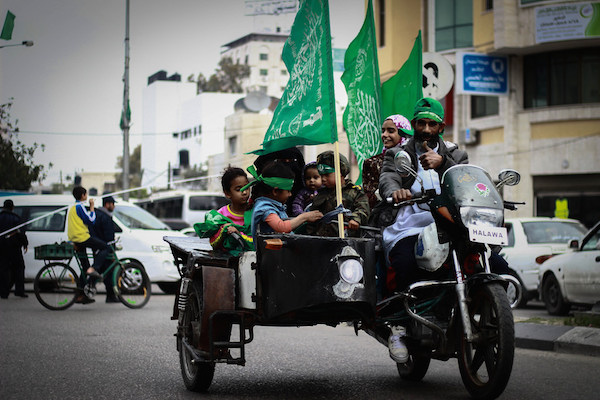Eleven days later, Israel’s latest operation has been a costly, disruptive rampage that seemingly aims to incite rather than stabilize.
By Julie M. Norman
Israel’s “Operation Brother’s Keeper” is not working. It is also exploitative, legally questionable, and strategically absurd.
Launched 11 days ago, the operation has yielded no new information regarding the location or well-being of Eyal Yifrach, Gilad Shaar and Naftali Frenkel, the three teenagers who were kidnapped while hitchhiking in the West Bank last Thursday night. Israeli Prime Minister Benjamin Netanyahu maintains that Hamas is responsible for the abduction, yet no evidence has been made public, and Hamas denies the allegations.
Meanwhile, five Palestinians, including a 14-year-old boy, have been killed in clashes with the Israel Defense Forces and Border Police in the West Bank; universities, newspaper offices, and over 1,000 homes have been raided; and over 350 Palestinians, mostly members of Hamas, have been arrested.
To say that the operation to find and free the three teenagers is suffering from “mission creep” is an understatement. IDF spokesman Peter Lerner readily stated that the operation not only aims to resolve the kidnapping, but also “debilitat[e] Hamas terrorist capacities, its infrastructure and its recruiting institutions.”
The fact that Israel would like to rout out Hamas is not new and is no secret. But doing so under the guise of Operation Brother’s Keeper exploits the situation of the kidnapped teens and the very real angst of their families. After all, it becomes difficult for observers both inside and outside Israel to question raids and crackdowns, however far removed from the abduction investigation, when the hashtag “#BringBackOurBoys” is attached. Yet by allowing the search for Hamas to take precedence– operationally, if not rhetorically – Israel is using the situation of the missing teens to its advantage.
Read +972′s full coverage of the kidnappings
The lopsided attention given to routing Hamas over investigating the kidnapping is clear when looking more closely at the arrest and detention figures. According to Israeli sources, while over 350 Palestinians have been arrested in the past 11 days, only 30 are being interrogated because they are suspected of having information related to the kidnapping. The majority of others have not been questioned at all.
Furthermore, the IDF revealed in military hearings last week that they plan to issue new administrative detention orders to about 200 of those recently released. Israeli human rights group B’Tselem defines administrative detention as “detention without charge or trial that is authorized by administrative order rather than by judicial decree.” According to Israeli Military Order (MO) 1591, military commanders can detain individuals for a period of six months, which can then be renewed or extended.
Administrative detention is technically legal under international law (Fourth Geneva Convention, Article 78), but is to be used sparingly, and only in specific circumstances. As echoed by both the International Committee for the Red Cross and the Israeli Supreme Court itself, detention is only to be used when a person is deemed to pose an immediate security risk and only as a preventative (not punitive) measure. Instead, scores of Palestinians are held in administrative detention at any given time (ranging from over 1,000 during the Second Intifada to approximately 200 prior to Operation Brother’s Keeper), as the concept of “security threat” has been expanded to include those belonging to certain political parties (i.e. Hamas), participating in unarmed resistance, or expressing opposition to the peace process.
Human rights groups both inside and outside Israel have questioned the widespread use of administrative detention, and earlier this month UN Secretary-General Ban Ki-moon called for administrative detainees to be charged or released without delay. The policy has been gaining additional attention in the past weeks also as approximately 80 prisoners in administrative detention have been on hunger strike since April 24.
The fact that 200 more administrative detention orders are being issued (doubling the number of detainees) further sustains a legally questionable policy. Furthermore, it is not strategic, as the prisoners’ issue has nearly unmatched salience on the Palestinian street. Indeed, even when popular resistance is low, the prisoners’ cause, especially during hunger strikes, remains a unifying issue, with solidarity tents, demonstrations, and commercial strikes. This type of mass incarceration, rather than defusing potential threats, is more likely to serve as a catalyzing issue both inside and outside the prisons.

The arrests and raids are not strategic for other reasons as well. The swift crackdown on Hamas spoils any opportunity for progress from the recent unity agreement between Fatah and Hamas. While the new government was perceived warily by many both inside and outside of Palestine, it at least offered a cautiously optimistic change from the stagnation that has consumed Palestinian politics for the past seven years, and offered the possibility of new elections. Operation Brother’s Keeper has squandered that by seemingly intentionally pitting Hamas and the Palestinian Authority against each other.
Indeed, Operation Brother’s Keeper has only further weakened the PA and reduced any remaining legitimacy it had. Much of the discontent at protests and demonstrations this past week have been targeted at the PA itself, specifically at the cooperation between Palestinian and Israeli security forces. The situation has created a dynamic in which Palestinian President Mahmoud Abbas and the PA are losing credibility, while emboldening the image of Hamas. This will only complicate any future attempts at negotiations as the PA’s already waning support further declines.
Operation Brother’s Keeper has not returned the missing teens, nor has it contributed at all to maintaining security and safety. Instead, it has been a costly, disruptive rampage that seemingly aims to incite rather than stabilize.
Julie M. Norman is a professor of political science at McGill University in Montreal. She is currently based in Jerusalem.
More on the kidnappings:
What happens when the IDF embeds Israeli reporters
This is what a military operation in Hebron looks like
Israel’s crackdown moves beyond Hamas militants


